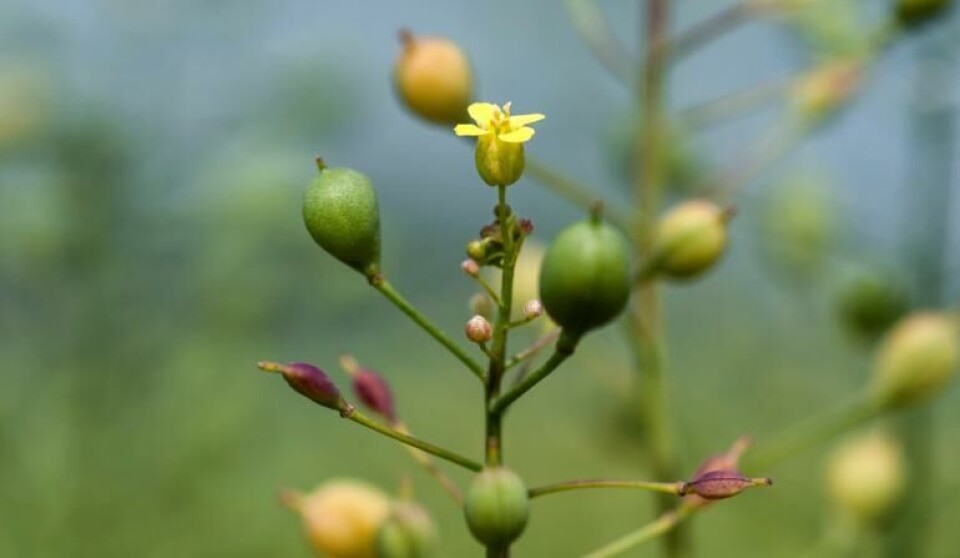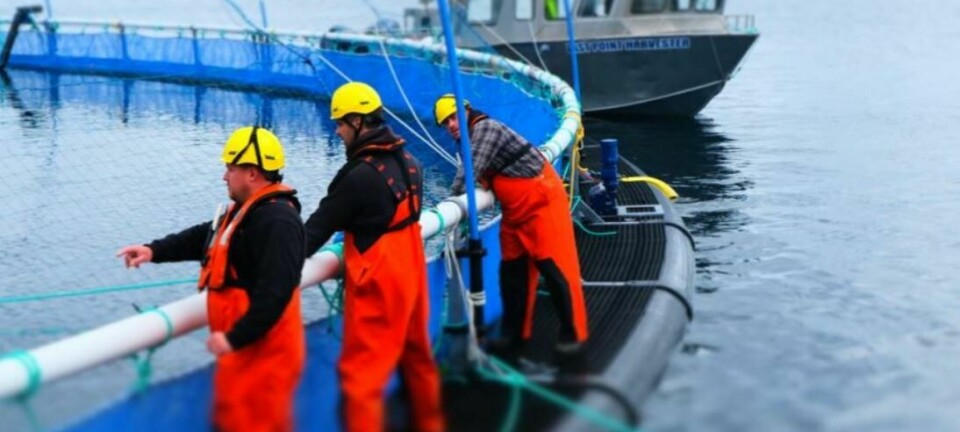
GM camelina creator finalises licensing deal with US bioscience company
Crop will offer alternative source of omega-3 for fish farmers
The UK research institute that developed a genetically modified oil seed plant producing omega-3 oils has taken a final step to commercialisation by granting US-based Yield10 Bioscience an exclusive global commercial licence.
Rothamsted Research and Massachusetts-based Yield10 have been working together for several years, and in October last year Yield10 exercised its option to finalise a licence agreement for the GM camelina. That finalisation process is now complete.
Rothamsted said the licensing of the GM camelina, developed over two decades by a team led by Professor Johnathan Napier, represents a significant achievement for UK bioscience expertise. While British research in metabolic engineering has long been world-leading, very few UK bio-engineered crops have so far made the final leap to commercial translation and exploitation.
Expertise and support
“Over the last three years, the Yield10 team has provided us with expertise and support as our team has advanced the development of engineered camelina from field testing to planting at multi-acre scale to produce omega-3 oil,” said Professor Angela Karp, Rothamsted director and chief executive.
“Yield10’s innovations and capabilities in camelina are impressive, and successful commercialisation of this technology could have significant benefits, offering sustainable production of an oil essential for nutrition and wellness to consumers, as well as providing crop diversification to growers.”
GM camelina also has the potential to reduce the salmon industry’s reliance on omega-3 derived from sources such as the Peruvian anchovy harvest, which sets what Napier calls the “gold standard” for omega-3 but has in the past been cancelled because of low stocks in the sea.
'Best alternative'
Aquaterra, an omega-3 oil derived from GM canola and made by the global company Nuseed, is already commercially available as an alternative to fish oil, and so is algal oil made by fermenting algae in bioreactors. But Napier says Rothamsted’s camelina is a better analogue for fish oil than Aquaterra as it contains 10% each of the omega-3 long chain fatty acids EPA (eicosapentaenoic acid) and DHA (docosahexaenoic acid), whereas Nuseed’s GM canola predominantly produces DHA. He says that GM omega-3 can be produced more economically and in greater quantities than algal oil.
Oliver Peoples, president and chief executive of Yield10, said that enabled by Rothamsted’s technology, the company was on “a promising path to commercialising elite omega-3 producing varieties of camelina that combine good agronomics in the field while also producing high-value, high-purity omega-3 oils possessing very attractive economics”.
Positioned to scale up
“In 2024, we are positioned to execute on the scale-up of omega-3 producing camelina and to submit key regulatory filings with the goal of being ready for an initial commercial launch into the oil and meal markets. We also look forward to improving the current camelina varieties over time particularly with the deployment of herbicide tolerance and other performance traits.”
Napier said: “This is a major step towards realising our dream of delivering an engineered crop with both environmental and consumer benefits. Developing such new varieties takes many hours of painstaking lab work, field trials and analysis, but I have been fortunate to work with many talented and dedicated colleagues who have contributed to this exciting outcome.”





















































